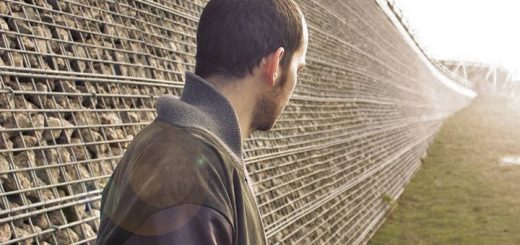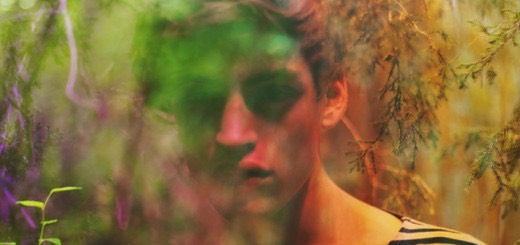The two lives of Daalib. Being a gay boy in Mogadishu
Testimony of Daalib, a gay boy from Mogadishu (Somalia), collected by Alessandra Maria Starace*, first part
Daalib is not my name, but you can call me that. Maybe, one day, I will be able to tell you about my life without having to hide; I could even post a photo of myself smiling by the sea in winter, with my trousers rolled up to my knees, my feet freezing in the cold water and giving me goosebumps; or a photo in which I hug my boyfriend, the one I have yet to find.
But no now, I can't tell you my name, because I'm scared. And, by reading the following, you will also understand why I - and many kids with a similar story to mine - can reveal everything about themselves, except their name.
I am a Somali boy, born 27 years ago in Mogadishu. In 2016 I landed in Lampedusa, Italy, on one of those boats that the news often talks about.
Do you know my land? Have you heard of it?
Well, if you missed the opportunity, let me show it to you using the filter that has been my life, having come into the world and having lived throughout childhood, adolescence and a part of my existence as a young gay man in Mogadishu.
There has been war in Mogadishu for thirty years, yet people always smile. If you need help, most people will go out of their way to lend you a hand, they will invent a way to support you even if everyone - or almost everyone - has little or nothing to offer you in terms of material riches. My land is kissed by a wonderful sun that puts you in a good mood, and "kisses" you so strongly that, sometimes, you have to take refuge under the trees that the bombings have spared and catch your breath from the excessively intense heat.
Food is scarce and the war, which began before me in those parts, has worsened the situation: one of my first memories is that as a child I always had my finger in my mouth due to hunger and, because of this, I ruined my teeth .
My father repaired bicycles but earned almost nothing; Mom went out in the morning saying: "Let's see if I can bring something to eat home today." We – my brothers, my sisters and I – waited. Sometimes lunch arrived and the stomach was full, other times it wasn't. Maybe this is why I remember the taste of fruit so well: for example, I really liked mango, you could find some on some tree and, even if it wasn't ripe enough, you could have breakfast with it by sprinkling a little salt on it.
Despite the poverty, we all went to school in my family. And that's when the first "symptoms" of my being very out of line began.
You should know that since I was a child I have always liked to dress well, and by well I mean neatly. I got up early and washed myself carefully because I wanted to be clean and perfumed, then I ironed the clothes I left the house in because, even if I wasn't rich, those were things I could do for myself, and so I did them.
My brothers were always very controversial about this: they told me that I had attitudes for women and not as a man; Instead my mother and professors appreciated my ways: order, precision and my wanting to study with commitment and constancy. Certainly all this, if on the one hand it frozen good votes and praise, on the other it was beginning to make me suspects falling on me more than founded regarding my orientation. As I growing things, things became clearer and clearer both for me and for all the others.
In Mogadishu, with an accusation or even simply a hypothesis of homosexuality, go to prison and, for sure, you do not arrive the next day.
The population is 100% Muslim and the Koran called a law that is not discussed; I had had the mocking destiny as a gift to be born gay in one of those countries where the idea of two men or two women who love each other is not even remotely conceivable.
I had heard of stories in which, to remove a person who did not collect his sympathies from circulation, a guy had gone to the police and said: "Look that the such of such is ... one of those". Not even an hour after the accused had found himself in front of a judge who, even with the slightest suspicion that this could be founded, had ordered the imprisonment of the unfortunate and then, during the night, the police beaters had made the rest.
And since it was not unlikely that someone would notice that I was seriously gay, as well as for the bombs I began to convince myself that I was born in the wrong place for another reason.
This does not make you think that in Mogadishu the gays are not there or they do not meet; On the contrary, there are and meet.
In fact, the moment came when I too felt ready to meet other guys - with the due precautions - and I began to attend the secret places on the beach and the historical ones of the city where I knew that in the discretion of the late evening the people met LGBTQIA+. There were boys with annoying ways, and when they approached I avoided them; Others, on the other hand, were kind and romantic and I liked it very much. But the problem was and always remained the same: I was afraid, we all had it, because in Somalia, if you are homosexual, you are in fact a criminal.
The boys, however, were certainly not my only interest. Taking advantage of the generosity of my uncle, who lived and worked in the Arab Emirates and who sent me the equivalent of 80 euros per month, I enrolled in the Faculty of Medicine.
But, from the first year, things began to get hurt for me.
I attended a boy at the time, one of those capable of hiding his homosexuality very well, unlike me. Because of my ways considered too delicate to belong to a man, a friend told me that there was a rumor around that I was "one of those".
At that point, I decided that it was time to leave Mogadishu and Somalia, thus abandoning my land and all my projects, because you cannot live, grow, study and realize with the constant fear of being killed because you move, You comb and love differently from most of the other people. I told my boyfriend I wanted to leave; He didn't want to know to follow me but I had decided by now.
In 2015 I gathered my few belongings, my pennies, my documents and left; I crossed Ethiopia, Sudan and arrived in Libya.
And - from that moment - the Odyssey of hope began for me.
… (continues)
* TWO LIVES is a project by Alessandra Maria Starace and the volunteers of the Gionata Project to tell the lives of LGBT+ migrants often fleeing from states where war, intolerance and homotransphobia kills. We would like to collect and tell their forgotten stories to show the difficulties but also the encounters that changed their lives, because we remember that each of us can always make a difference in welcoming the other, because "whoever saves a life saves a world ”. Do you want to help us, do you want to tell us your story or that of a person close to you? Write to us at gionatanews@gmail.com






